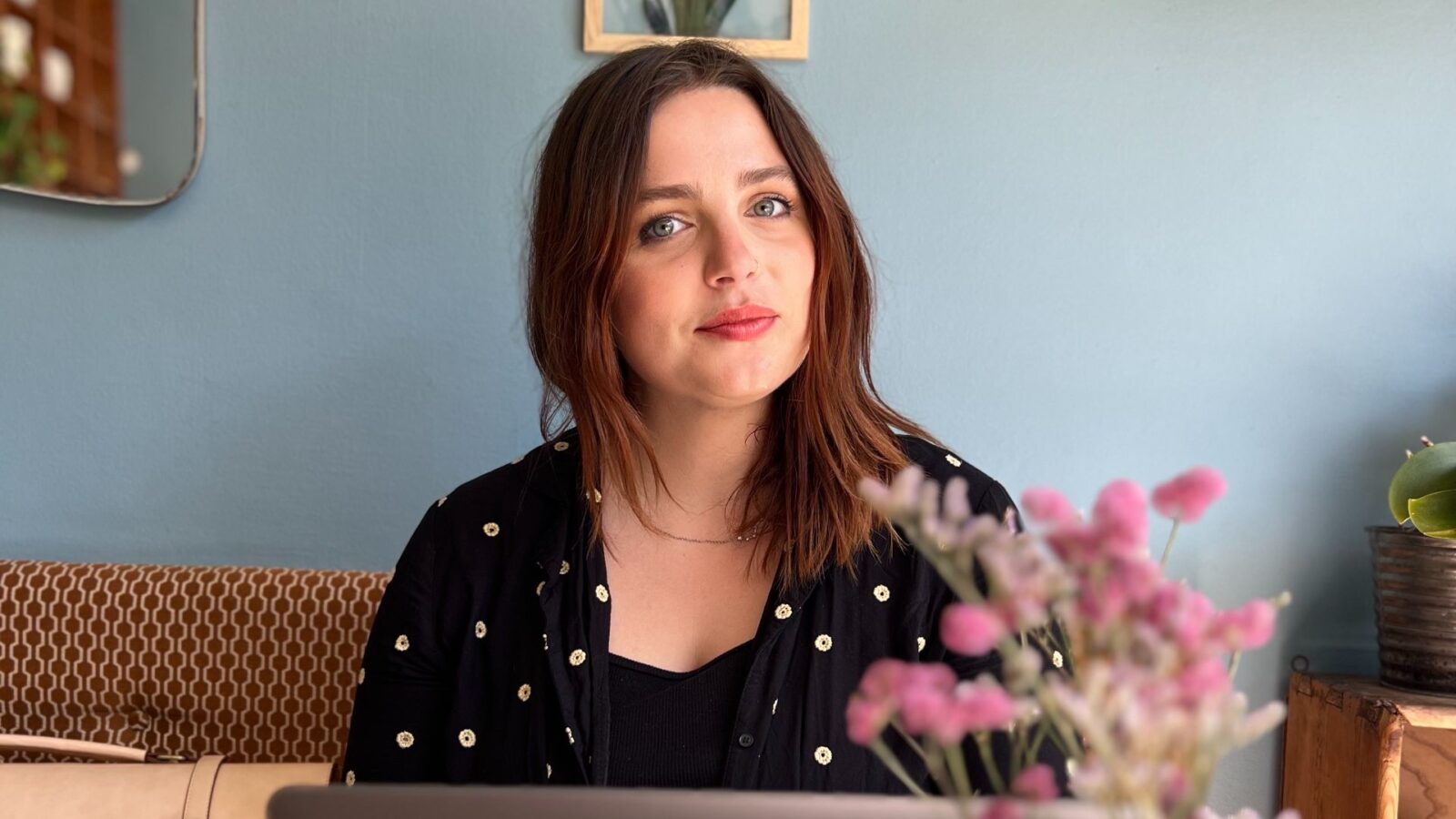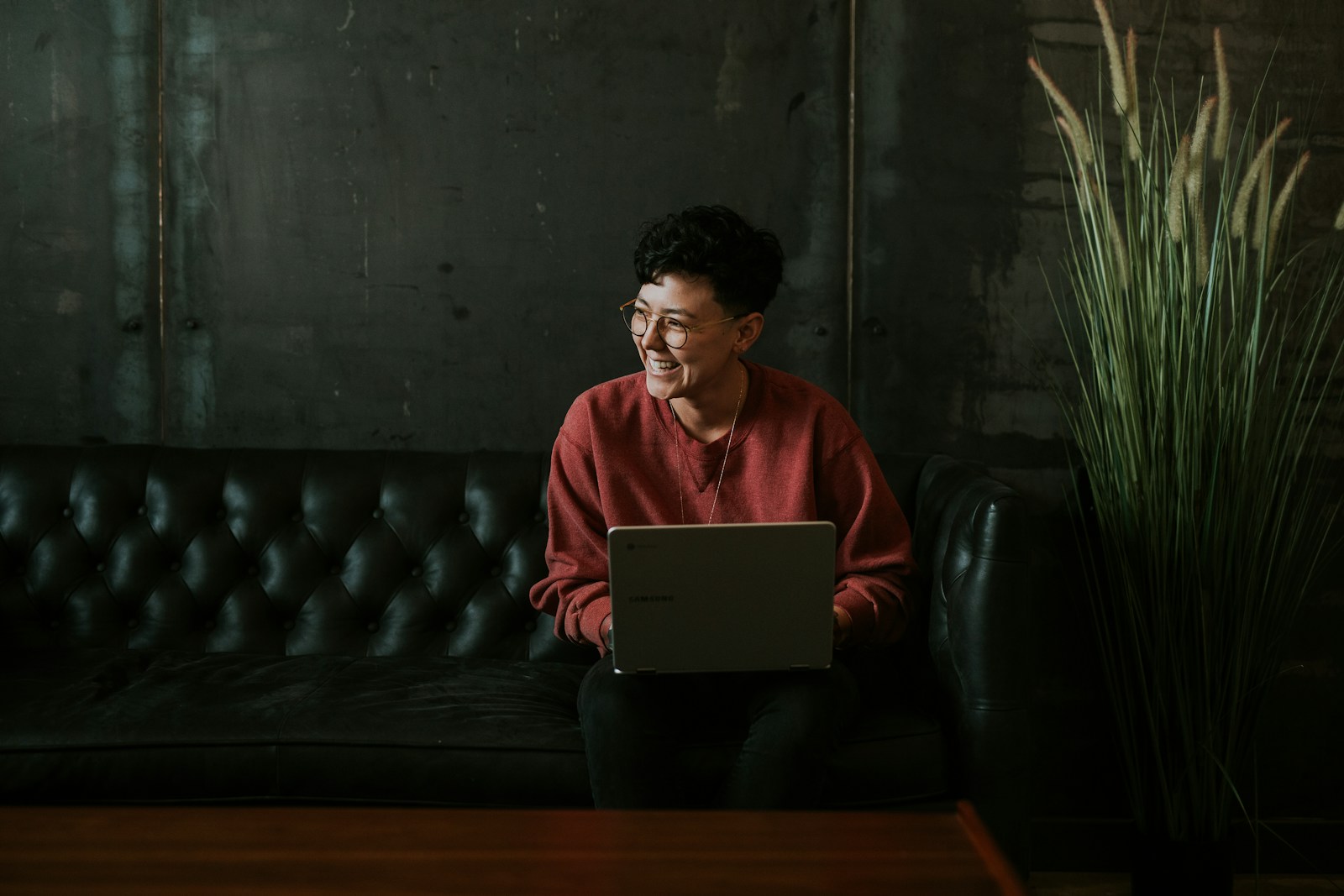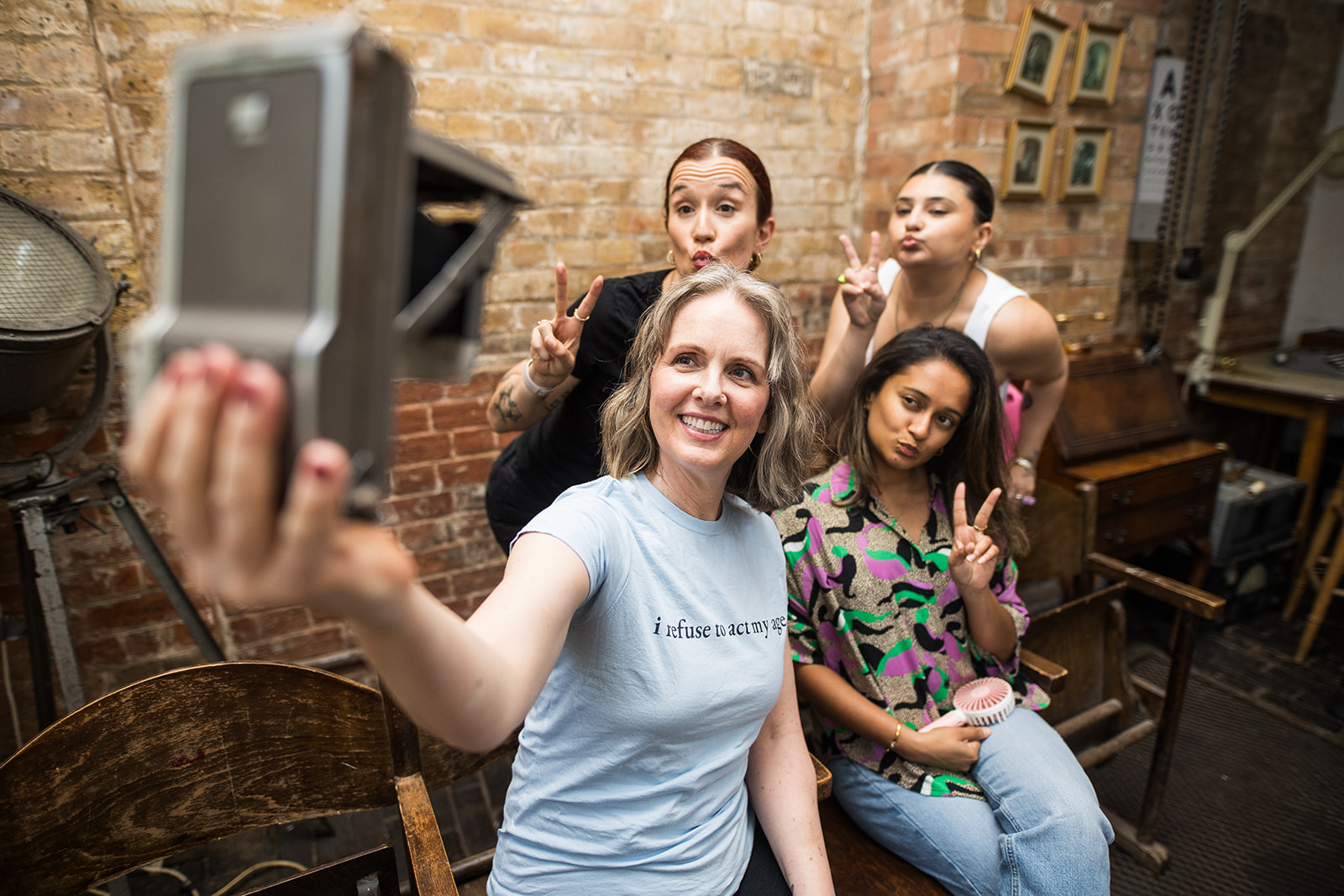Navigating the digital world, creating content has become a way for professionals and businesses to share their ideas and have a deeper connection with people from all corners of the globe.
But there’s more to it than just well crafted funnels or personal brand techniques. There’s a kind-hearted aim we can chase – creating content that does a bit of good in the world. Today, we’re going to have a chat with Verónica Lawson Vilches, who’s been doing just that. She’s been sprinkling a bit of magic online by showcasing how a dollop of empathy can go a long way. How to juggle the ethical bits and bobs, and how to spark a positive change with just the right words.
As we wander through Verónica’s journey, we’ll explore the nitty-gritty of creating ‘content for good’. We’ll talk about opening our arms to inclusivity, getting to know our audience, making sure our info is spot on, and how to pick ourselves up and learn when things go a bit pear-shaped.
This isn’t just a tale of Verónica’s digital adventures, but a chance to have you think you can craft content that not only tells a story but makes a difference too. So, let’s dive in, shall we?
Defining Content for Good
How would you define content for good to someone who is very much new to the idea?
What content for good is, to me, it’s using our content to, one, educate and two help in some way. Content for good for me is educating and it’s helping.
And it’s coming, when we touch upon difficult subjects or any subject, just coming to it with some sensitivity and empathy, which I think a lot of the typical marketing does not have.
I think typical marketing tactics are often fear-based, and I don’t want to come upon certain subjects with that fear. When I get to my copywriting too, I try to keep it positive, and I think about how is this affecting me as the copywriter or as the marketer? And how is this going to affect anyone who will read this? That’s what content for good to me is. It’s educating and helping.
Navigating Ethical Considerations
Navigating ethical considerations is a crucial part of the content creation journey. What are some of the questions you’d ask yourself when approaching sensitive topics?
“Is this a subject that I can speak about? Because there’s certain things I can educate myself about before being able to actually speak up on. And I have to ask myself , ‘is this a subject that I can really touch upon and educate? Or is this a subject I should be educated on? Is this a subject that would be better for someone else?”
Bringing in Diverse Voices
And this isn’t just a one-way street; it’s a bit of a learning curve for us too.
By opening up the floor to others, we’re not only creating content that resonates with a broader audience, but we’re also learning, evolving, and getting a tad wiser along the way.
Another way to also open the floor to others is being mindful of creating content that resonates with diverse audiences. What are some of the ways you’d personally build a feedback loop?
I would speak with people who have gone through that and ask them, Does this content resonate with you? Does this content offend you in any way?
Because I obviously have my lens. I have my set of eyes. But if I’m touching upon a subject that may be more international, where I may have done lots of studying, but I’ve never lived or experienced it, I need that extra set of eyes.
Verifying Sources and Information
On that note, I’d love to dive into the importance of research. How can we make sure that the information we share stands on a solid ground of accuracy, while also taking into account biases?
If I’m going to get my information from a stat done by CNN or by a stat done by Fox News. I obviously take into consideration that the stats are given with a purpose of convincing people or bringing people into one way.
I make sure that I look at where my resources are coming from, and who the person or organization is behind it. Who is the head of this foundation or this resource? And do a little bit of studying too, about who they are.
Taking a Journalistic Approach to Content
The journalist in me is going back to the journalistic approach of research. By dedicating time to thorough research and fact-checking, we contribute to a digital ecosystem that values truth and integrity.
It’s a commitment to our audience that the content we create is not just engaging, but also reliable and informative.
I think there’s so much power with content, and this is where I go back to, there’s so much power with the content that we’re putting out. I was on TikTok the other day. Obviously it’s filled with the news that’s going on in Israel and Gaza.
The video was trying to misconstrue what was going on by using troops from another country and another war but selling it as if it were actually happening now within this situation. We need to be careful with the content that we’re watching, that we’re taking in, because there’s so much fake information, and it’s not fake news, it’s fake information.
Make sure that what you’re doing is actually telling the truth and not just trying to bring people into one way or the other, or that you’re just there specifically to sell. But that might just be my journalistic idealism.
Obstacles that Prevent you from Creating Content for Good
When it comes to making decisions about how to show up online, we often hear from our students the lack of clarity on what next steps to take to make sure their content has a wider impact.
That often also includes another layers, the fear of actually saying the wrong thing or the fear of actually not knowing how their opinion is going to be coming across.
Do you think that can be something that can prevent us from showing up?
Yeah, I think so. I’ve always said, for me, one of the statistics that I look at in my content when it goes out is what conversation has it started with my audience? What have I learned from this content as well?
Because if I put out some content, and I may have made some error. I always try to educate myself on that error that I’ve made, go back to the person who taught me about that, thank them.
I think it’s probably one of the reasons why people fear this kind of content. Because it is embarrassing to be wrong and mess up. I have felt embarrassed at times of things that I’ve spoken about online or things that people are like, oh, actually, have you seen this statistic and sent me an article speaking about that. And then I’m like, oh, I didn’t do my 100 % best in making sure that that content was correct.
I did this back when I was not even a content creator yet, just sharing things on Instagram. I’ve always been someone who wants to share content to make people aware of issues. So this has happened to me before, and I educate myself on it.
I thank the person for starting that conversation with me. I think some people either don’t do it because they’re scared. Also because they’re so set in their views, they know that they don’t want to be educated too.
How to Learn from Our Mistakes
One of our alumni once said “being afraid of making a mistake is a way our ego stops us from learning”.
Because if you make a mistake, you learn from it, and that mistake can only really be seen as a downfall if we don’t learn from it. It’s okay for us not to know everything, and that’s a very humbling thing to remind ourselves.
Exactly. My experience as a white woman with an immigrant mother in the United States is not going to be the same experience as other children with immigrant parents in the United States. I’m always very open to hearing their experiences, and I think it goes back to the content for good. I have to have empathy behind it as well, because I want to hear about these stories. Just because I have lived something similar or a similar situation does not mean that everyone else’s experience was the same.
It’s a way to learn, and it’s a way because if you just continue in life just this way, you’re never going to understand how privilege affects you.
How to Measure the Impact of your Content
I love that earlier you mentioned the importance of seeing what conversations you content starts among your audience. How do you measure the impact of your content to help you see if you’re on the right track?
What is the conversation that has been started? I look at how many people have actually commented on the post.
Reach is important, likes are important, leads are important. But the most important stat for me is, what is the conversation I have started in the comment section? How many people have let me know that it’s resonated? And not just through comments, but also through DMs.
Because I’ve had people message me about posts that I’ve done and telling me about their experiences on the subject, giving me extra information on it…
And since we’re talking about ‘marketing’ too, many of my leads or customers have come through a few of those posts as well… because in some way it resonated with them.
How to Get Started with Creating Content For Good
What advice would you give to somebody who wants to create more content to actually contribute positively to the world in whichever way?
I would make sure that the subject(s) you are taking on are close to your heart because I think once the subjects are near and dear to you, you’ll have that empathy
If there were a subject that I’m really not educated on, would I have that empathy and passion for it? Probably not.
Make sure that that content for good is not like a marketing tactic. I think a lot of organisations do that. Make sure it’s something that you really want to see change in, because people can smell inauthenticity from a mile away. For example, the companies that use the LGBTQ+ flag for pride month but finance politicians who hurt the community.
Creating Content for Good
If you are looking for more inspiration, look at one amazing example of campaigns for good from her LinkedIn.
“It was an organisation called Women for Women in France. And the campaign was launched in 27 languages with well-known people from these countries.” explains Verónica’s. “So they were Spanish speakers, they were well-known. British and French actress and singer, Jane Birkin, was the face for the campaign in English. I loved that campaign because it took into consideration that there’s a lot of immigration in France. And so it took into this fact that a lot of women who may be dealing with domestic violence don’t know what resources are available, where they need to go. They took that into consideration. And I just absolutely loved that campaign. So that was one of the campaigns that has stuck out to me.”
This is just one example of how we can use our platforms responsibly and thoughtfully, ensuring that our content promotes empathy, education, and understanding.
Together, we can harness the potential of content creation for good and inspire positive change in the world.
It’s less about the shock and awe, and more about lending a helping hand, sharing a kind word, and maybe, just maybe, sparking a little ripple of change. And who knows? That ripple might just turn into a wave of good vibes in the vast sea of online chatter.
Find more about Verónica Lawson Vilches on LinkedIn or via her newsletter.
Want more? Here's your invitation from the school ⤵️
We don’t teach you how to do more. We teach you how to do it better.
You don’t need more hacks. You need smarter foundations, better systems, and clarity that cuts through the noise.You got into this to make a difference. Let’s help you do that, with strategy and a whole lotta heart.
➡️ Find out how we can help via our all-access pass.




